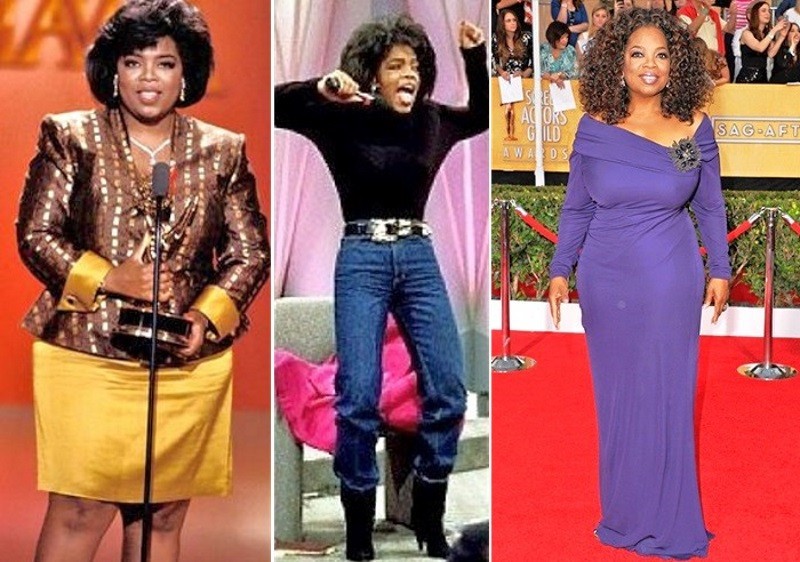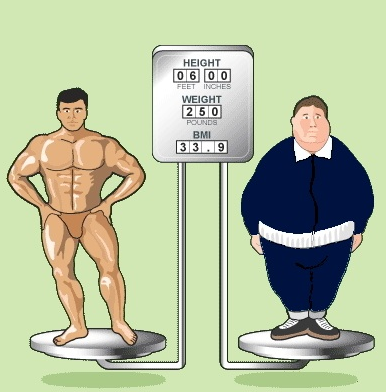The myth of the biggest loser
Over the past year, I’ve presented in Cuenca on “best” and “worst” diets for weight loss. I always focus on eating for energy, and if you’re working out, to fuel your fitness.
So when I saw a recent report on the inability of “Biggest Loser” contestants to keep their weight off, it struck a cord. Not only do the majority regain their considerable weight, some have regained more.
And not only that, the reality show now has a spinoff! As described on Business Insider, a series called “The Big Fat Truth” seeks to highlight “bad” behaviors and mentalities that (the producer says) are responsible for the Biggest Loser’s participants’ weight regain.
A small 2016 study published in the journal Obesity examined ‘Biggest Loser’ contestants six years after completing the contest. Of the 14 studied, only one single contestant kept all of the weight off! Of all those studied, 13 regained some of their weight, and four contestants regained all of the weight they lost in the competition — plus significantly more.
Those who lost the most weight (and remember, this was very quick weight loss) experienced a significant slowdown in resting metabolism, that is, the rate at which you burn calories just by living and breathing.
During the so-called “competition” to lose weight, the contestants sharply boost their caloric burn by exercising for six, seven, even eight hours every day. This unnatural behavior creates an extreme calorie deficit. At the same time, they cut their calorie intake to starvation levels, unable to obtain even the minimum amount of essential micronutrients for good health.

Biggest Loser
Throughout the competition, they’re accountable to personal trainers, nutritionists, and of course, the viewing audience (some say they’re harangued). And following the competition, contestants are on their own.
Once they’ve cut their body mass, they need far fewer calories to maintain their weight.
And it’s not just that they need fewer calories. By changing their body so radically and quickly, they have wreaked havoc with the hormones that regulate hunger and satiety. Most importantly leptin, the hormone that governs satiety, can drop to a level that promotes craving and ultimately makes “dieting” by restricting calories counter-productive.
We all know that “Reality TV” is really fake TV, but when it comes to the ‘Biggest Loser’, it’s very painful to watch. The show doesn’t address the reasons why people become so dangerously overweight to begin with. It doesn’t address the emotional issues that cause people to overeat.
Obesity in the USA and around the world is due to a number of reasons, not least is that we live in an “obesogenic” environment, with manufacturers and marketers spending billions of dollars on influencing consumers to buy and eat more.
I find this incredibly sad. Desperate people, dangerously obese and unhealthy, go on reality television to compete to see who can lose the most weight in the least amount of time. Viewers get to watch while these unfortunates struggle through Herculean amounts of exercise, and starve themselves down the scale. In the end, like in all reality television shows, there’s only one winner…everyone else is a loser — and it’s not the person who lost the most weight — it’s the television show producers.
Researchers show that the longer someone stays in severe negative energy balance, by over-exercising and under-eating, the more likely their body will try to adapt to this unnatural inadequate calorie provision. The body is fighting against starvation and slows metabolic rate significantly just for survival. The hunger hormone (ghrelin) becomes more prevalent in the body, while the satiety hormone (leptin) decreases. Cravings are every dieter’s worst enemy, and they’re promoted with this unrealistic weight loss strategy.
It’s worth mentioning that most people think that diets don’t work. They may believe this because almost everyone who “goes on a diet” regains the weight.
But, they’re wrong.
I based my 2009 book Making Weight Control Second Nature: Living Thin Naturally on the well-proven fact that ALL diets work.
Those who “go on a diet” change what they typically eat and drink, or their diet. They give up eating and drinking the foods that contributed to their being fat, and adopt someone else’s “diet plan”. By definition they switch from eating mindlessly to eating with deliberate planning and structure.
 Maybe you’re thinking of going on a “low carb” diet. You hear, “eliminate all carbs including white flour and processed foods.” Yeah! That’s a good plan.
Maybe you’re thinking of going on a “low carb” diet. You hear, “eliminate all carbs including white flour and processed foods.” Yeah! That’s a good plan.
Maybe you’ll go “low fat” and ditch the French fries and fried chicken, fried potato chips and added butter and cream cheese. Yeah! That’s a good plan too.
Maybe you’ll go “Paleo” and eat only fresh foods, lean meats, fruits and vegetables. No grains! No beans. No booze! Yeah! That’s a good plan too!
Hmm. Isn’t that funny! Research continually shows that no matter what “diet” an overweight person chooses, they’re usually ditching processed, high-sugar foods, and hopefully adding activity.
But most people who “go on a diet” eventually “go off” the diet when they see that “magic number” on the scale that indicates success.
But, what happens if they return to their typical eating behaviors? Now that they’re out of “diet purgatory” do they return to the burgers and fries, the ice cream and cake, the second or third beer or margarita?
You might say that since most people gain back weight after “going on a diet” that diets don’t work. But that isn’t true. It’s your diet that isn’t working.
I encourage my weight management clients to avoid weighing themselves frequently, and instead, we work on what they eat, how much, and when.
Your weight is just a number on the scale, and while it can be a way to measure weight loss, it doesn’t necessarily measure fat loss. Weight doesn’t always indicate how healthy you are — you can be thin, and quite unhealthy.

They weigh the same!
Body Mass Index (BMI), a ratio used to assess a person’s weight in relation to their height, does not measure body fat. If you are a muscular person, your BMI may be high, but it could be reflective of your muscle mass, not your fat stores.
Your other numbers are far more important than your weight. How’s your blood pressure and blood sugar? If you’re overweight and hypertensive or pre-diabetic, losing some weight has been shown to improve these numbers.
These other numbers count. How many hours of sleep do you get? How much time do you spend in getting regular activity daily? Are you doing any resistance training? How many repetitions? On a scale of 1-10, what’s your stress level? All these numbers are important to your health.
No doubt if you’re obese, changing your diet (what you typically eat and drink) can be a recipe for success, but losing weight extremely quickly can be a formula for health failure. The key to good health is to fuel your fitness with high-quality food, as you tweak your diet to eliminate as many processed foods as possible. Be a winner by making your diet a healthy one.
For more suggestions on staying healthy without “dieting” read my column here.
Susan Burke March, a Cuenca expat, is a Registered and Licensed Dietitian, a Certified Diabetes Educator who specializes in smart solutions for weight loss and diabetes-related weight management. She is the author of Making Weight Control Second Nature: Living Thin Naturally—a fun and informative book intended to liberate serial dieters and make healthy living and weight control both possible and instinctual over the long term. Do you have a food, nutrition or health question? Write to her – SusanTheDietitian@gmail.com
Sources
CuencaHighLife.com. New Years Diet? What happens on January 22?
Obesity. Persistent metabolic adaptation 6 years after “The Biggest Loser” competition
The New York Times. The Key to Weight Loss Is Diet Quality, Not Quantity, a New Study Finds




















